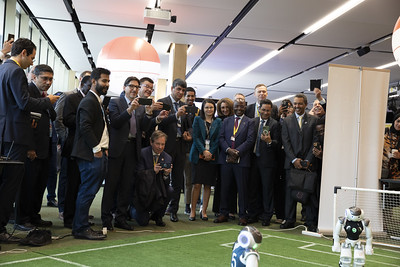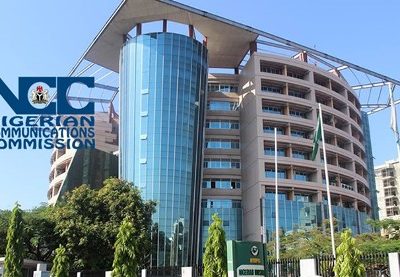Commitments on inclusive AI standards and capacity building announced at ITU’s AI for Good Global Summit.
Leaders from government, industry and the global artificial intelligence community took bold steps towards making AI more inclusive at the AI for Good Global Summit in Geneva, Switzerland.
RELATED: ITU’s AI for Good Global Summit 2024 puts tech to the test for people and planet
A series of actions, commitments and new initiatives reflected strengthened diversity of viewpoints and the vision of ITU – the UN Agency for Digital Technologies – to make AI work for the good of all.
ITU, along with 40 UN partners, stressed the need to include all perspectives, especially those of developing countries, in discussions on the global digital future.
“All voices need to be at the AI table,” said ITU Secretary-General Doreen Bogdan-Martin. “At this decisive moment for the future of global cooperation, the AI for Good Global Summit sets the path for inclusive AI governance, the fight against AI-driven disinformation, and rescuing the SDGs.”
Using AI to benefit people and the planet
ITU’s AI for Good platform, established by ITU in 2017, identifies practical applications of AI to accelerate progress toward the SDGs. It also connects AI innovators with public and private-sector decision-makers to help scale up AI solutions globally.
At AI Governance Day, ITU and UNESCO launched UN Activities on Artificial Intelligence, a compilation of more than 400 projects by 47 UN agencies addressing all 17 UN Sustainable Development Goals (SDGs).
A partnership announced between ITU and the United Nations University aims to tap into the wealth of knowledge within the AI for Good community, including nearly 10,000 AI experts from academic institutions around the world.
The resulting flagship report will offer this expertise as a resource for stakeholders, helping them create innovative solutions and make informed decisions as they navigate the evolving world of AI.
Commitments to comprehensive standards
The world’s leading international standards organizations – ITU, the International Organization for Standardization (ISO), and the International Electrotechnical Commission (IEC) – announced a unified framework for AI standards development, highlighting the push to translate AI governance principles into practical, actionable standards.
A new multistakeholder initiative was also announced to support coordinated standards development for AI watermarking, multimedia authenticity, and deepfake detection. This partnership includes the Content Authenticity Initiative, Coalition for Content Provenance and Authenticity, Internet Engineering Task Force, IEC, ISO, and ITU.
New stimulus to capacity development
The AI for Good Impact Initiative launched at the summit aims to expand the scope and impact of AI applications for sustainable development. The initiative will link AI innovators with opportunities to scale and fund promising AI solutions for every SDG equally across every region.
Activities will include regional AI for Good Impact events; global competitions to crowdsource AI solutions and boost AI expertise; research and policy guidance on AI for sustainable development; and accelerators for start-ups and small and medium-sized enterprises.
Dynamic discussions and demos forecast the future
This year’s AI for Good Global Summit showcased innovations in generative AI, robotics, and brain-machine interfaces that can accelerate progress in areas such as climate action, accessibility, health, education and disaster response.
Summit speakers, including some of the world’s most recognized voices on AI, explored the latest breakthroughs in AI and examined actions to ensure that AI works to humanity’s benefit.
Demos featured technologies using AI to translate brain waves into written and spoken words, and mind-controlled robotic prosthetics that included an AI-powered exoskeleton to allow people with severely limited mobility to walk again.
AI Governance Day and the AI for Good Global Summit brought together government officials, industry leaders, UN heads, technical experts, academics and civil society representatives from 29 to 31 May.
The events, organized by ITU with the support of 40 partner UN agencies and co-convened by the Government of Switzerland, welcomed thousands of participants in Geneva and 10,000 more online.































